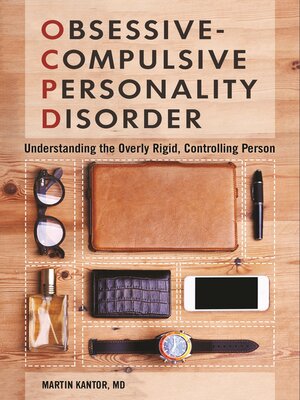Obsessive-Compulsive Personality Disorder
ebook ∣ Understanding the Overly Rigid, Controlling Person
By Martin Kantor MD

Sign up to save your library
With an OverDrive account, you can save your favorite libraries for at-a-glance information about availability. Find out more about OverDrive accounts.
Find this title in Libby, the library reading app by OverDrive.



Search for a digital library with this title
Title found at these libraries:
| Loading... |
This unprecedented work is an invaluable resource for therapists treating patients with obsessive-compulsive personality disorder (OCPD), for individuals suffering from OCPD, and for friends, family, and coworkers of those with OCPD.
Although a significant number of individuals suffer from obsessive-compulsive personality disorder (OCPD), most of these people see themselves as being perfectly normal. In actuality, they are missing out in life due to their being compulsively prompt, counterproductively perfectionistic, and excessively penurious. This book explains what OCPD is, making it clear how it differs significantly from OCD; explains the thought processes and desires that give rise to the counterproductive defense mechanisms of OCPD; and identifies the approaches and methods that can allow such afflicted individuals to break through their character armoring and become rehumanized.
In this book, Martin Kantor, MD, presents information to defuse the many manifested symptoms of OCPD: anxiety, indecision, unreasonable perfectionism, and difficulty in compromising. His explanations and methods will give the hopeless succor, move the stalled forward, and foster interpersonal cooperation and flexibility in the stubborn, while simultaneously enhancing the OCPD individual's social performance thus increasing his or her chances for interpersonal, relational, and occupational success. Kantor also identifies the social manifestations of OCPD and describes how to move idiosyncratic, rigid bureaucracies toward accomplishing what should be their most important mission: helping those who are in need and seeking comfort.
Although a significant number of individuals suffer from obsessive-compulsive personality disorder (OCPD), most of these people see themselves as being perfectly normal. In actuality, they are missing out in life due to their being compulsively prompt, counterproductively perfectionistic, and excessively penurious. This book explains what OCPD is, making it clear how it differs significantly from OCD; explains the thought processes and desires that give rise to the counterproductive defense mechanisms of OCPD; and identifies the approaches and methods that can allow such afflicted individuals to break through their character armoring and become rehumanized.
In this book, Martin Kantor, MD, presents information to defuse the many manifested symptoms of OCPD: anxiety, indecision, unreasonable perfectionism, and difficulty in compromising. His explanations and methods will give the hopeless succor, move the stalled forward, and foster interpersonal cooperation and flexibility in the stubborn, while simultaneously enhancing the OCPD individual's social performance thus increasing his or her chances for interpersonal, relational, and occupational success. Kantor also identifies the social manifestations of OCPD and describes how to move idiosyncratic, rigid bureaucracies toward accomplishing what should be their most important mission: helping those who are in need and seeking comfort.






